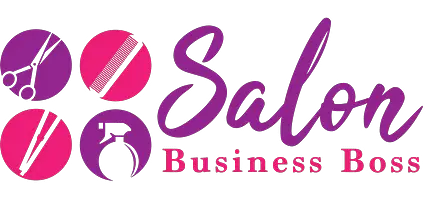Are you passionate about hairstyling and dream of owning your very own hair salon? The beauty industry is thriving, and owning a hair salon can be a fulfilling venture. However, embarking on this journey requires careful planning, dedication, and a clear roadmap to growth.
To own your own hair salon, start with a solid business plan, secure financing, choose the perfect location, create an inviting atmosphere, and build a skilled team. Legal compliance and effective marketing are key to growth in this thriving industry.
In this article, we will explore the essential steps to help you turn your dream of owning a hair salon into a reality.
Create a Detailed Business Plan
The first and most crucial step in realizing your dream of owning a hair salon is to create a comprehensive business plan. Your business plan will serve as the foundation for your salon’s growth. It should include:
Business Vision and Mission

Creating a clear business vision and mission for your hair salon is vital. Think of it as your salon’s guiding star. Your vision is like a long-term goal, while your mission is your daily compass.
First, your vision: Imagine what you want your salon to be in the future. Do you aim to be the most eco-friendly salon in town? Or perhaps you want to specialize in unique, trendsetting hairstyles? Your vision shapes your salon’s destiny.
Next, your mission: It’s all about how you get there. Describe what makes your salon special. Is it your exceptional customer service, top-notch stylists, or affordable pricing? Your mission sets you apart from the competition and tells clients why they should choose your salon.
Remember, your vision and mission should be clear and concise, so both you and your clients understand your salon’s purpose and unique qualities. This clarity will guide your decisions and help you stand out in the competitive world of hair salons.
Read more about: The Big Reveal: Grand Opening Ideas to Wow Your Hair Salon’s Guests
Market Research
Conducting thorough market research is like shining a spotlight on your hair salon’s path. It’s about understanding the world around you.
Start with your target audience: Who are the people you want to serve? Think about their age, gender, preferences, and needs. This knowledge helps you tailor your salon to their desires.
Next, study your competitors: Who else is offering similar services in your area? What are their strengths and weaknesses? By knowing your competition, you can find ways to stand out and offer something unique.
Lastly, look for opportunities: Is there a gap in the market that you can fill? Maybe people in your neighborhood are looking for a salon with flexible hours, or they want eco-friendly products. Finding these openings can set you on the path to growth.
Financial Projections
Creating detailed financial projections is like plotting the map for your salon’s financial journey. It’s about planning for every penny that goes in and out.
Start with startup costs: These are the expenses you’ll face at the beginning, like renting a space, buying equipment, and getting permits. Knowing these costs helps you understand how much money you need upfront.
Next, think about operating expenses: These are the ongoing costs, like rent, utilities, and salaries. Estimating these costs helps you budget for your day-to-day operations.
Lastly, revenue projections: These are your income estimates. How much money do you expect to make from your services? Knowing this helps you set prices and figure out when you’ll break even and start making a profit.
In simple terms, financial projections are like your salon’s financial road map. They guide you, helping you make smart decisions about money. By planning carefully, you’ll be better prepared to handle the financial side of running a salon.
Business Structure

Choosing the right business structure for your salon is like picking the best foundation for a sturdy house. It’s all about setting up the legal framework for your business.
Here are your options:
Sole Proprietorship: This means you’re the sole owner of your salon. It’s simple and gives you full control, but you’re also personally responsible for any debts or liabilities.
Partnership: If you have a partner, you can go for this option. It shares responsibilities and profits, but it’s important to have a clear partnership agreement.
LLC (Limited Liability Company): An LLC offers some personal liability protection. Your personal assets are separate from your salon’s debts, which can protect you in case of legal issues.
Corporation: This is a separate legal entity from you. It can be more complex to set up but offers strong liability protection.
Consider your salon’s size, goals, and the level of control you want. Each structure has its pros and cons. It’s crucial to choose the one that suits your salon’s needs and your long-term plans. Making the right choice at the beginning can save you headaches down the road.
Read more about: The Art of Marketing: Tips for Hairstylists
Marketing Strategy
Crafting an effective marketing strategy for your salon is like drawing a roadmap to let people know you exist and why they should choose your salon. It’s about creating a plan to get the word out and keep clients coming back.
First, consider your target audience: Who are the people you want as clients? Understand their needs, preferences, and where they spend their time. This knowledge helps tailor your marketing efforts to reach them.
Next, think about your message: What makes your salon special? Is it your exceptional customer service, skilled stylists, or unique services? Your message should clearly communicate what sets you apart from the competition.
Now, choose your marketing channels: These are the ways you’ll reach your audience. It could be through a website, social media, local advertising, or partnerships with nearby businesses. Each channel has its strengths, so select the ones that align with your audience and message.
Lastly, plan for client retention: Once you attract clients, how will you keep them coming back? Loyalty programs, personalized recommendations, and excellent service can help build lasting relationships.
Secure Financing
Once you have a solid business plan in place, you’ll need to secure financing to turn your dream into a reality. Depending on the scale of your salon and your financial situation, you can explore various funding options:
Personal Savings
Having personal savings available for your hair salon venture can serve as a valuable financial resource to kickstart your business. Essentially, this means you’re using money you’ve saved up over time to fund the initial stages of your salon.
This approach offers several benefits. Firstly, it enables you to avoid borrowing money from banks or investors, which means you won’t have to pay interest or share profits with others. Your savings can be immediately accessible, allowing you to take swift action in launching your salon.
However, it’s essential to exercise caution when using personal savings. Ensure that you have enough set aside for both your business and personal needs, as starting a salon can be financially demanding. It’s prudent to create a clear budget and financial plan to track your expenses and ensure that your savings are being utilized wisely.
By tapping into your personal savings, you can embark on your hair salon journey with a strong financial foundation. This approach offers financial autonomy and can be a prudent way to initiate your business endeavors.
Small Business Loans

Exploring the option of obtaining a small business loan from a bank or financial institution can be a strategic move to secure the necessary funds for your hair salon venture. This involves reaching out to a bank or similar entity and requesting a loan specifically designed for small businesses.
To maximize your chances of approval, it’s crucial to present a well-prepared business plan. This plan should comprehensively outline your salon’s objectives, financial projections, and strategies for growth. The bank or lending institution will scrutinize your plan to assess the viability of your business and your ability to repay the loan.
Small business loans typically come with varying interest rates and repayment terms, so it’s essential to carefully review and understand the terms before proceeding. Additionally, be prepared to provide collateral or personal guarantees to secure the loan.
While obtaining a small business loan can provide the necessary capital to launch your salon, it’s important to consider the associated financial responsibilities and ensure that your business plan aligns with your ability to repay the loan in a responsible manner.
Read more about: Tanning Salon Start-up: A License Guide
Investors or Partners
Exploring the option of securing investors or partners for your hair salon is a way to obtain financial support from individuals who share your belief in your salon’s potential. This approach involves reaching out to individuals who are interested in becoming part of your salon’s journey and are willing to invest their money in your venture.
Investors or partners can provide financial resources, expertise, or both, depending on the terms of your agreement. They may contribute funds in exchange for equity in your salon or as a loan with specific repayment terms.
Before approaching potential investors or partners, it’s vital to have a clear and compelling business plan. This plan should articulate your salon’s vision, potential for growth, and the benefits of partnering with or investing in your business.
When seeking investors or partners, it’s crucial to establish a mutually beneficial agreement that outlines each party’s roles, responsibilities, and expectations. This agreement should also address issues such as ownership percentages, profit-sharing, and decision-making authority.
Select the Perfect Location
The location of your hair salon plays a pivotal role in its triumph. Conduct thorough research to find a suitable location that aligns with your target market. Consider factors such as foot traffic, visibility, accessibility, and proximity to other businesses. Additionally, ensure that the location adheres to zoning regulations for hair salons.
Design Your Salon Space
The interior design and layout of your salon can greatly influence the overall client experience. Create a welcoming and comfortable atmosphere that reflects your brand. Invest in quality salon furniture, equipment, and decor that compliments your salon’s aesthetic. Efficiently organize workstations and ensure there’s ample space for clients to relax while waiting.
Legal and Regulatory Requirements
Before opening your salon, you’ll need to navigate various legal and regulatory requirements. This may include:
Business License
Securing the essential permits and licenses is a critical step to ensure that your hair salon operates within the boundaries of the law in your specific location. These permits and licenses are like official approvals from local authorities that grant you permission to run your salon business.
Each area, city, or region may have its own set of requirements and regulations, so it’s crucial to research and identify the specific permits and licenses you need. Common examples include a general business license, health permits to ensure sanitation standards, and zoning permits to confirm that your salon is in an approved location.
To obtain these permits and licenses, you typically need to submit an application, pay the required fees, and meet specific criteria. This might include having the appropriate equipment, adhering to safety regulations, and maintaining cleanliness standards.
Insurance
Investing in liability insurance is a prudent step to safeguard your hair salon business in the event of accidents or legal disputes. Liability insurance serves as a protective shield, shielding your salon from financial harm and potential legal consequences.
Liability insurance typically comes in two main types: general liability and professional liability (also known as malpractice insurance). General liability insurance covers incidents like slip-and-fall accidents on your salon’s premises, whereas professional liability insurance is relevant if a client alleges negligence or dissatisfaction with your services.
Having liability insurance is like having a safety net. If an unexpected situation arises, the insurance can help cover legal fees, settlements, or medical expenses, depending on the circumstances. Without insurance, you could be personally responsible for these costs, which can be financially devastating.
Health and Safety Compliance

Adhering to health and safety regulations is a fundamental aspect of operating your hair salon responsibly and ensuring the well-being of both your clients and staff. These regulations are established to maintain a safe and hygienic environment within your salon.
One of the primary areas of concern is sanitation standards. This entails implementing practices and procedures to keep your salon clean and free from potential health hazards. Proper sanitization includes disinfecting tools, workstations, and common areas regularly to prevent the spread of infections or diseases.
Furthermore, compliance with health and safety regulations encompasses providing a safe workplace for your employees. This involves addressing any potential hazards within the salon, such as ensuring that flooring is slip-resistant, electrical systems are up to code, and fire safety measures are in place.
Read more about: Tanning Salon Business Profit: Financial Insights
Employment Regulations
Understanding employment regulations is essential if you intend to hire employees for your hair salon. These regulations are designed to protect both employees and employers by establishing clear guidelines for the workplace.
Labor laws cover various aspects of employment, including wages, working hours, and workplace safety. It’s crucial to be aware of minimum wage requirements and overtime rules to ensure fair compensation for your employees. Additionally, familiarize yourself with workplace safety regulations to create a secure and healthy environment.
Another critical aspect is employment contracts. These documents outline the terms and conditions of employment, including job responsibilities, compensation, working hours, and termination procedures. Employment contracts provide clarity and legal protection for both you and your employees, helping to prevent potential disputes.
Build Your Team
Your salon’s growth depends on the skill and professionalism of your team. Recruit experienced hair stylists, colorists, and other staff who share your passion for delivering top-notch services. Provide training and ongoing education to keep your team updated on the latest trends and techniques in the beauty industry.
Create a Memorable Brand
Effective branding is essential for attracting and retaining clients. Develop a unique and memorable brand identity, including a salon name, logo, and color scheme. Consistency in branding across all marketing materials and your salon’s interior will help build brand recognition.
Marketing and Promotion
To effectively market your hair salon, establish a strong online presence through an appealing website and active social media engagement. Additionally, utilize local advertising methods like flyers, community events, and collaborations with neighboring businesses to attract a local clientele. Encourage client referrals through incentives and loyalty programs, while also requesting positive reviews on platforms such as Google My Business and Yelp to enhance your salon’s online reputation. These strategies combined will help you reach and retain clients in your community.
Offer Exceptional Services

The heart of any salon is the quality of its services. Strive to provide exceptional hairstyling, coloring, and treatment services to every client who walks through your door. Invest in high-quality products and stay up-to-date with industry trends to offer cutting-edge services.
Customer Service Excellence
Exceptional customer service is key to building a loyal client base. Train your staff to be courteous, attentive, and responsive to clients’ needs. Listen to feedback and continuously improve your salon’s services and client experience.
Read more about: The Cost of Beauty: Hair Salon Start-Up Expenses
Financial Management
Effective financial management is crucial to the long-term growth of your salon. Keep meticulous records of your expenses, income, and profit margins. Set aside funds for unforeseen expenses and invest in the growth of your business. Regularly review your financial statements and make adjustments as needed.
Client Retention
Building a solid base of loyal clients is essential for the sustainability of your salon. Implement strategies to retain clients, such as offering loyalty programs, personalized recommendations, and special promotions. Building strong relationships with your clients can lead to word-of-mouth referrals and long-term growth.
Conclusion
Owning your own hair salon can be a great journey filled with creativity and entrepreneurship. By following these twelve essential steps, you can turn your dream into a thriving reality. From meticulous planning and securing financing to creating an inviting space and delivering exceptional services, every aspect of salon ownership requires dedication and commitment. Remember that building a hair salon takes time, patience, and a passion for the beauty industry. Embrace challenges as opportunities for growth, and you’ll be well on your way to owning a flourishing hair salon that clients love.
Frequently Asked Questions

Q: What are the typical startup costs for opening a hair salon?
A: Starting a hair salon can vary widely in cost depending on factors like location and scale, but it often includes expenses for rent, equipment, licenses, and initial inventory.
Q: How do I choose the right location for my hair salon?
A: Selecting the ideal location involves considering factors such as target market, foot traffic, accessibility, and proximity to competitors. Researching the local market is crucial.
Q: What legal requirements and permits are needed to open a hair salon?
A: Legal obligations may include business licenses, health and safety permits, insurance coverage, and compliance with zoning regulations. It’s essential to consult local authorities and professionals.
Q: What strategies to use to attract clients to my salon?
A: Effective marketing strategies include creating a strong online presence, offering promotions, engaging in local advertising, utilizing social media, and encouraging client referrals.
Q: How can I ensure the financial growth of my hair salon in the long term?
A: Sustaining financial growth requires sound financial management, tracking expenses and revenue, fostering client loyalty, keeping up with industry trends, and continually improving services.
To learn more on how to start you own salon checkout my startup documents here.
The information provided by SalonBusinessBoss.com (“The Site”) is for general informational purposes only. All information on the Site is provided in good faith, however, we make no representation or warranty of any kind, express or implied, regarding the accuracy, adequacy, validity, reliability, availability or completeness of any information on the Site. Under no circumstance shall we have any liability to you for any loss or damage of any kind incurred as a result of the use of the Site or Reliance on any information provided on the Site. Your use of the Site and your reliance on any information on the Site is solely at your own risk. This blog post is for educational purposes only and does not constitute legal advice. Please consult a legal expert to address your specific needs. Terms and Conditions. (https://salonbusinessboss.com/terms-conditions/)

About the author. Entrepreneur and Salon Business Fan.
Hi! I am Shawn and I am a happy individual who happens to be an entrepreneur. I have owned several types of businesses in my life from a coffee shop to an import and export business to an online review business plus a few more and now I create online salon business resources for those interested in starting new ventures. It’s demanding work but I love it. I do it for those passionate about their business and their goals. That’s why when I meet a salon business owner, I see myself. I know how hard the struggle is to retain clients, find good employees and keep the business growing all while trying to stay competitive.
That’s why I created Salon Business Boss: I want to help salon business owners like you build a thriving business that brings you endless joy and supports your ideal lifestyle.

